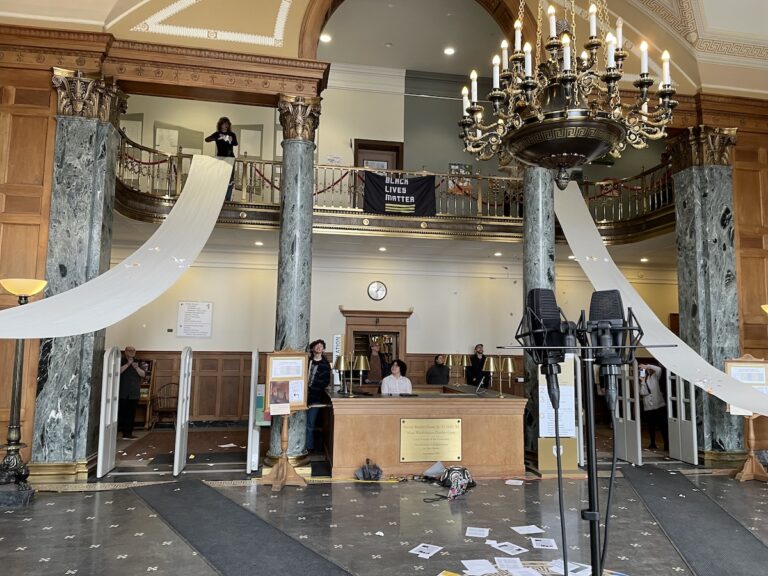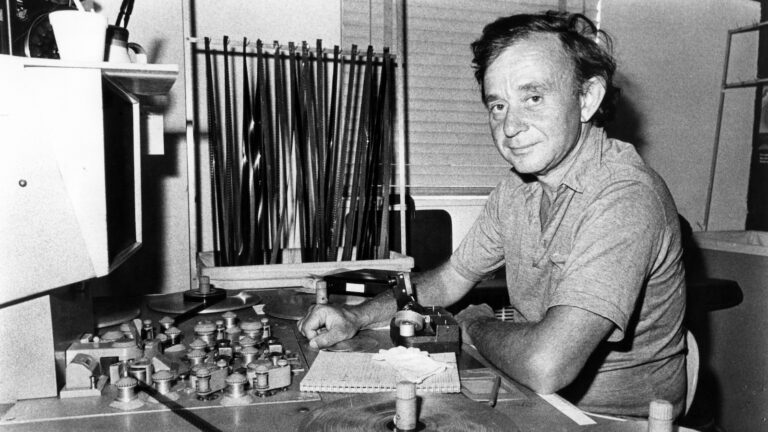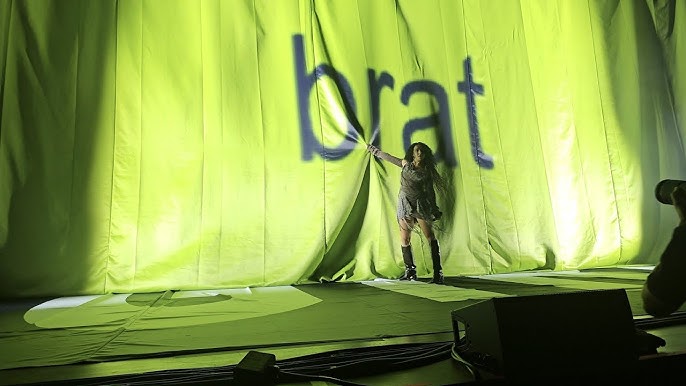Rosencrantz and Guildenstern very much alive in COL lounge
It’s impossible for me to address this performance without taking a moment to commend director Ted Kelly on his excellent taste in pieces. On the night of the performance I attended, there were quite a few audience members being exposed to “Rosencrantz and Guildenstern Are Dead” for the first time. Watching them fall in love with the witty banter and mix of philosophy and comedy gave me all the pleasure of an evangelist observing fresh converts. I love this play the way I would love my first-born child, if that child were hilarious and exceptionally intelligent. And so, Kelly’s decision to stage the work in the College of Letters (COL) lounge on Homecoming weekend was a great service to the Wesleyan community.
It was, perhaps, less of a service to playwright Tom Stoppard. It takes an exceptional director to stage this play without being overshadowed by the script, and Kelly seemed uncertain about how to approach the task. One issue was the blocking: the COL lounge offers enormous potential for unconventional blocking choices. Second Stage member Annie Paladino ’09 encourages directors to use the lounge for plays, saying, “More things should go up in this space.” However, Kelly did not fully take advantage of this potential, instead setting the action far downstage for the entire first act. Though he stated, “[The space] is not ideal, but I think we were able to do some interesting things with it,” I am at a loss to say what these interesting things could be. More successful in manipulating the space for the show was set designer Liam Stansen ’10, who cleverly incorporated the lounge’s brick pillars into the design by painting the flats to match.
There were a few standout performances that carried the play. Most notably, Gabe Fries ’09, as Rosencrantz, had the audience consistently doubled over laughing. An immensely talented comic actor, his befuddled Dubya-looking-at-a-map demeanor was the show’s main source of energy. Audience member Ruby Ross ’08 described Fries as having “excellent comic timing.” While his scene partner, Augustus Spelman ’11, as Guildenstern, has a lovely voice and perfect diction, his attitude of wry resignation varied little throughout the production. Such deadpan delivery often kept jokes from being understood. It is only when he engaged in the “questions battle” and rationalizes Hamlet’s death that Spelman showed the dynamic spark he is capable of.
Also impressive was Jordana Wolf ’08, as the leading player. Despite keeping a fairly low profile on the campus theatre scene, she is easily one of the most talented actresses at Wesleyan. Her charismatic and captivating performance was at its strongest when she allowed the sexuality implied by the text to influence the character’s physical movements. However, such sensuality was stifled by what might be Kelly’s decision to present the leading player as a sort of business-woman of the modern era: more Hilary Clinton than Joel Grey. The director also made the rather bizarre decision to refer to her using male pronouns (yes, they are in the script, but could perhaps have been altered).
Finally, the “ensemble of players” seemed to have been neglected by the director, resulting in many a scene in which they stand awkwardly, then turn to one another and move their mouths silently to signify background conversation. The saving grace for the players is that they genuinely seemed to be enjoying themselves. It was hard not to find them charming as they emoted and indicated with all the gusto of school children performing their first play. One particularly amusing performance was Alfred, played with pitch-perfect awkwardness by Saul Carlin ’09 (who, interestingly, has yet to do a play at Wesleyan that does not involve sodomy). In spite of all their undeveloped potential, the actors seem a happy bunch, and there were enough genuinely impressive performances that the two-and-a-half-hour play went by fairly quickly.
Fumbling as it may be, the performance was lovely, in the same way that neighborhood kids setting up lemonade stands are lovely. The house was full of parents and friends who laughed at all the right places and beamed with pride. Perhaps the best symbols of the production were the swords that adorned Rosencrantz and Guildenstern’s belts. Plastic and laughably fake, they seem to belong on a playground more than a stage. But their sweet earnestness, emblematic of so much of the play, warmed my overcritical heart.







Leave a Reply